Questionmy pup is 7 months old and "going" in his crate. I thought we were well on our way to success, but in the last couple of weeks he has begun urinating in his crate. He had his tail docked 2 weeks ago and was examined by the vet, so i don't think it is a physical problem. He also will eat his stool when he poops in his crate or in the house.
AnswerSeven months is still pretty young for a pup to be fully housetrained, so don't get too discouraged yet. There are several potential factors that might be at issue here. If he's on antibiotics, anti-inflammatories, or pain meds after his surgery, that could be the culprit right there (and sometimes these drugs - especially anti-inflammatories and pain meds - have a lingering effect for a week or more after the drugs are stopped).
It's hard to give much useful advice, other than 'go back to square one', without knowing more about the situation and what you've already tried. Is he drinking more than usual? Is he crated for longer periods of time than he's used to? Are you picking up the water a half-hour or more before he goes in the crate, and taking him out just before you put him in? (If he's been doing well until now I'd imagine these are things you've already addressed, but you didn't mention and it doesn't hurt to ask; sometimes we get used to the puppy being pretty good and start slipping on things before they're really able to control themselves. Once we realize it and get back on a more controlled program, the accidents stop. :) )
Eating stool is not uncommon in puppies - most do grow out of it in time. The general thought is that they're trying to 'hide' the mess from you, either because they've been punished for mistakes in the past, or because they've seen you clean it up and think they're helping. Sometimes though, it's just something they do! There's not much at this point you can do about him eating stool in his crate - save shortening the length of time he's in his crate so that he doesn't poop in it - but when he's in the house, you can keep an eye on him so that he doesn't have a chance to poop inside. If that proves difficult, consider using an "umbilical cord" (a leash attached to your waist) so that he can't sneak away - and so that if he does start fussing/pacing because he needs to go, you're more attuned to him and will start to recognize the signs. A bell on the door that you teach him to ring when he needs to go out might help, too.
Good luck! Please post again if I've just recapped what you've already done!
~Jennifer

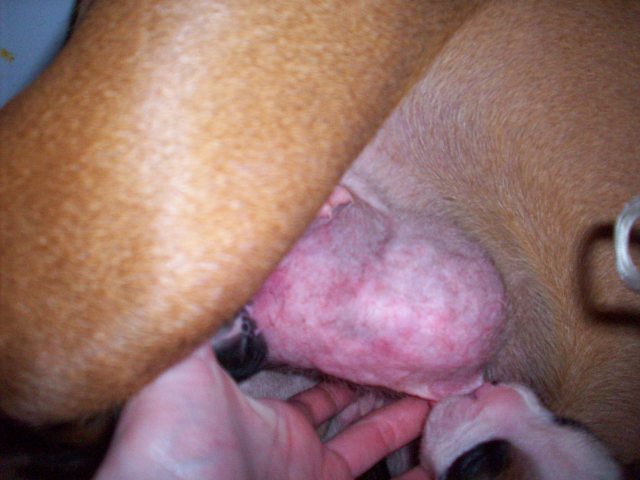 Nursing
QuestionTeat Image #1
QUESTION: Hi, I have a 2 y
Nursing
QuestionTeat Image #1
QUESTION: Hi, I have a 2 y
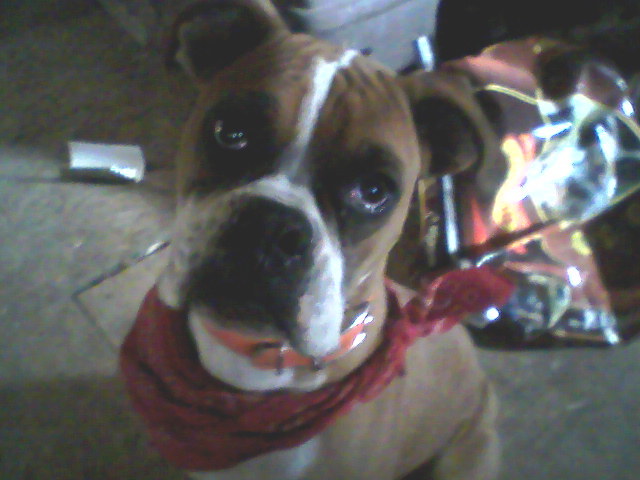 reacurring soars on paws
Question
Bugzy
my 2 year old female boxer keeps having
reacurring soars on paws
Question
Bugzy
my 2 year old female boxer keeps having
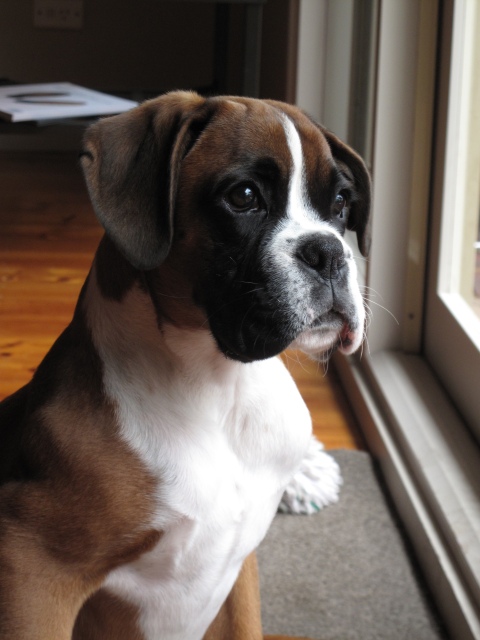 Growing pains?
Question
Rocky
I have an almost 5 month old (in a few d
Growing pains?
Question
Rocky
I have an almost 5 month old (in a few d
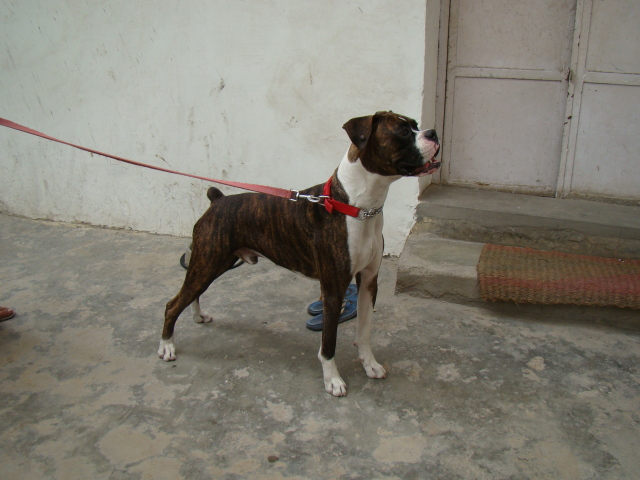 boxer height
Question
Bolt
my boxer is 13 months old but weighs arou
boxer height
Question
Bolt
my boxer is 13 months old but weighs arou
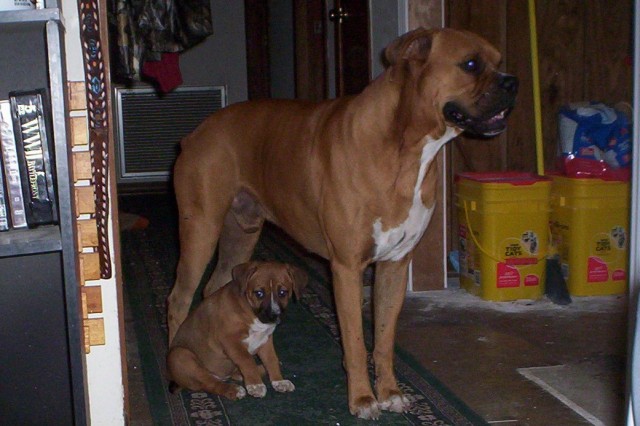 new boxer puppy
Questionandre and boots
QUESTION: i have an akc
new boxer puppy
Questionandre and boots
QUESTION: i have an akc